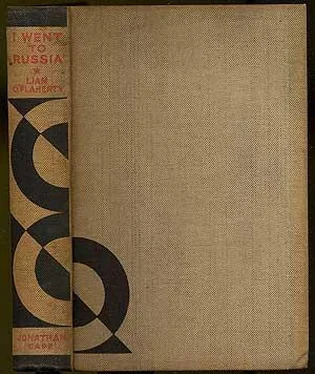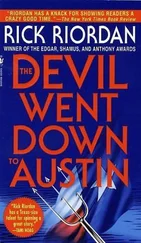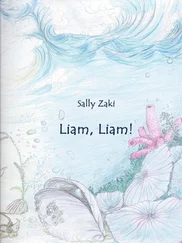‘Give me your word of honour. A state secret you know. Do you know what happened at the United Services Club last night?’
The little wretch leaned close to rne and said in a secret tone:
‘I am surprised that you never heard of Panistrati. His book made a sensation in France and England. They forbade it in Russia. It angered them very much, for this Panistrati was received by them as a great writer, treated with great honour for a whole year in the Soviet Union, where he went about agitating and behaving as an enthusiastic Communist. Then suddenly he left and wrote a book, denouncing Bolshevism. So it is said, for I have not read the book. But the case of my father was prominent in the book. I am sorry you have not read it.’
Then he added in a melancholy fashion:
‘My father was manager of the Europa Hotel at Leningrad. He had also an apartment which was coveted by Communist officials. In order to get the apartment, because apartments are difficult to get, they rigged up false accusations against him. They succeeded. All our family were punished with my father. I had to walk the streets for six months. Then the captain got me this job. It is better than hunger. The captain is a good man. He also protects me against those who grumble against the presence of Josef, that is my name, the son of the intriguer. And Panistrati gave a whole chapter to my father’s case. Oh! I am sorry you have not read it.’
It was obvious that he preferred the publicity his father got by being incorporated in the ‘book of Panistrati’ and the consequent ‘fame’ of the whole family, to the apartment and the position as manager of the Europa.
‘I was a wireless operator. Now I am an oiler. In the same way they try to tell us that Trotsky is writing for the counter-revolutionary papers. But I have been abroad and I know this is untrue. Trotsky is still a revolutionary. So am I. In spite of injustice I remain true to my class. I have fought in the Red Navy. I would again fight in the Red Navy. But my friend, it is difficult to put up with the envy and intrigue that is everywhere. On this ship, there are low scoundrels, envious wretches, greedy ruffians, wolves in the clothing of sheep.’
Suddenly he told a bawdy story, jumped up, said he desired love, did an obscene dance and darted off to his fo‘c’sle.
I burst out laughing.
‘Ah!’ I said to myself. ‘I am delighted to find they are after all human and not yet cogs in a machine, without soul, or sin, or vice. There is hope for humanity, as long as the new rulers of the earth, the conquerors of Europe, remain fickle and treacherous to one another, greedy of possessions, subject to the changing emotions which are the germs of beauty. Out of passion, whether good or evil, comes all joy of life. Man, even under Communism, when all the liquidation societies have exhausted themselves, will still remain a man, a crude brute, full of evil, but likeable.’
Yes, much more likeable than these damned monks in their shabby Tolstoyan blouses. For who wants virtue or temperance or godliness for a bed mate?
After dinner I again talked to the captain. He now told me about his life. He, like little Josef, the Parisian Jew, had also suffered. But whereas the sufferings of Josef, the Jew, were a trifle unreal and a trifle pleasing to merry Josef, the sufferings of the captain were terrible and they had left black scars on the soul of the captain, who was eaten with an implacable hatred of his enemies the bourgeoisie. I have never met anything so cold and so terrible as the hatred of the captain for the bourgeoisie. He whom everybody on board praised and loved for his gentle kindness, was a wild beast when he thought or spoke of the bourgeoisie, that intangible monster with a million heads. So does the Christian monk hate that other intangible monster, the devil. So did the early Christians hate those monsters, the Pagans.
Born of parents who were serfs, he became a revolutionary before he could read or write. He took part in the revolution of 1905, was imprisoned, escaped from Riga and went abroad, to travel around the world as a sailor and general labourer at all manner of work. ‘I was then a member of the Social Revolutionary Party,’ he said, ‘and afterwards a member of the Industrial Workers of the World. Now, of course, I understand that it is only within the ranks of the Communist Party the world revolution can be organised.’ He apologised for himself when he spoke of his past political affiliations. It was just as if an early Christian admitted having once been a Pharisee. He told me of revolutionary activities in America and Australia, how he had been put in jail and tortured in those countries, how he was also jailed and tortured in England; and then how he returned to Russia in order to continue the great work of liberating the toiling masses of the world.
Of the world? I began to doubt if he were still an international communist as he continued to talk. His hatred of foreign capitalists (for it was foreign capitalism especially that had persecuted him) had thrown him back on the broad bosom of mother Russia.
‘Look,’ he cried, cat the English workers. They all want to dress like their masters. They all want to wear the same trousers as the Prince of Wales and to wear the same tie as the Duke of York. They are slaves. We Russians are different. All our great men have always tried to dress as simple peasants. This is the blouse that Leo Tolstoy wore. The great Lenin never bothered about his clothes. In the old days our students were all rebels and they dressed like workmen. The spirit of freedom is born in the Russian. And when people tell me that life under Tsarism was a tyranny I tell them that the life of the worker and peasant under Tsarism was not so bad as the life of the European proletariat under capitalism. If a worker starved in our cities he went to the villages and got fed. The great Russian country lay ready to receive him. They boast of their inventions and of their science and of their civilisation and their culture and their art. But we can show them all these things in equal or even in greater proportion. No longer must Russia allow herself to be called the barbarian at the gates of Europe.’
As he spoke he almost lashed himself into a state of frenzy, so that I could hear the ghoulish characters of Dostoievsky thrusting themselves forward from between his teeth, the Karamosovs, the Idiots, the Devils and the strange creatures from the House of the Dead, wild and wonderful geniuses, ashamed of their barbaric ancestors, clawing greedily at all the beautiful philosophies of Europe, to use as tools for paring off their savage humps and warts.
Lo! The very newest and most potent philosophy was this dictatorship of the proletariat, for the use of which the insurrected Russian people had slain their Little Father and the whole horde of their nobility.
‘Yes,’ he said. ‘The Romanovs were dirty Germans, come to plunder Russia. They were not Russians. Peter the Great. There was a Russian. If he were alive now, I am certain he would be a sympathiser with our Party. I am certain he would understand we are continuing his work. We preserve all his work-tools in a little chapel at Leningrad.’
Then, with glittering eyes, he told me about Morosov, a Russian intellectual who had been imprisoned by the Tsar and had stayed fifty years in prison, being released by the outbreak of the revolution. When this man had crawled, astounded and unbelieving, into the light of day, a free man, it was discovered that he had planned an enormous book in jail. In spite of the shortage of paper this book was being published, volume after volume. And the book went to prove that neither Rome nor Egypt, nor Babylon ever existed. Nothing ever existed but Byzantium. And Byzatium is the mother of Holy Russia.
Читать дальше












